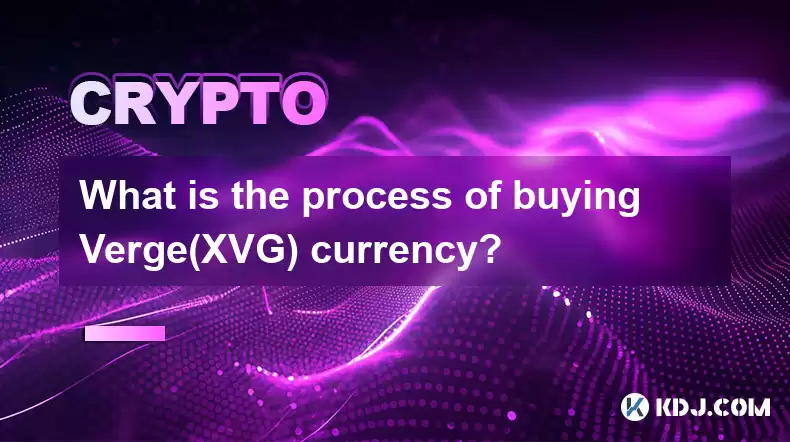-
 Bitcoin
Bitcoin $120300
1.41% -
 Ethereum
Ethereum $4296
2.75% -
 XRP
XRP $3.220
1.46% -
 Tether USDt
Tether USDt $0.9997
-0.04% -
 BNB
BNB $801.6
0.14% -
 Solana
Solana $179.9
0.22% -
 USDC
USDC $0.9998
-0.01% -
 Dogecoin
Dogecoin $0.2302
-0.24% -
 TRON
TRON $0.3405
-0.39% -
 Cardano
Cardano $0.7965
0.53% -
 Hyperliquid
Hyperliquid $44.80
2.57% -
 Chainlink
Chainlink $21.95
2.94% -
 Stellar
Stellar $0.4438
1.68% -
 Sui
Sui $3.767
-1.42% -
 Bitcoin Cash
Bitcoin Cash $584.4
3.24% -
 Hedera
Hedera $0.2554
-0.59% -
 Ethena USDe
Ethena USDe $1.001
-0.02% -
 Avalanche
Avalanche $23.57
0.00% -
 Litecoin
Litecoin $126.6
4.64% -
 Toncoin
Toncoin $3.339
0.94% -
 UNUS SED LEO
UNUS SED LEO $9.001
-0.49% -
 Shiba Inu
Shiba Inu $0.00001320
-0.92% -
 Uniswap
Uniswap $10.84
3.36% -
 Polkadot
Polkadot $3.945
-1.39% -
 Cronos
Cronos $0.1663
4.77% -
 Ethena
Ethena $0.8136
8.48% -
 Dai
Dai $0.0000
0.00% -
 Bitget Token
Bitget Token $4.391
-0.51% -
 Monero
Monero $268.0
0.80% -
 Pepe
Pepe $0.00001169
-1.57%
What is the process of buying Verge(XVG) currency?
To purchase Verge (XVG), select a reputable cryptocurrency exchange, create an account, fund it with fiat currency or another cryptocurrency, place a buy order for XVG, and securely store your XVG in a wallet.
Jan 01, 2025 at 10:23 am

Key Points:
- Choosing a reputable cryptocurrency exchange
- Creating an account and completing identity verification
- Funding the account with fiat currency or another cryptocurrency
- Placing a buy order for XVG
- Storing the XVG securely in a wallet
Process of Buying Verge (XVG):
1. Choose a Reputable Cryptocurrency Exchange:
- Consider factors such as security, fees, supported currencies, and reputation.
- Some recommended exchanges include Coinbase, Binance, and Kraken.
2. Create an Account and Complete Identity Verification:
- Provide personal information, including name, address, and date of birth.
- Upload government-issued identification for verification.
- This process ensures compliance with anti-money laundering and know-your-customer (KYC) regulations.
3. Fund the Account with Fiat Currency or Another Cryptocurrency:
- Fiat currency: Deposit funds from a bank account or credit/debit card.
- Another cryptocurrency: Transfer cryptocurrency from another wallet or exchange.
4. Place a Buy Order for XVG:
- Choose the "Buy" or "Trade" section of the exchange.
- Select Verge (XVG) as the currency to buy.
- Enter the amount of XVG desired.
- Select the type of order (e.g., market, limit, or stop-limit).
- Submit the order.
5. Store the XVG Securely in a Wallet:
- After the purchase, transfer the XVG to a secure wallet.
- Hardware wallets (e.g., Ledger, Trezor) provide offline storage with advanced security.
- Software wallets (e.g., Exodus, Trust Wallet) offer convenience but may be less secure.
FAQs:
Q: Is Verge (XVG) a good investment?
A: The value of XVG is subject to market volatility. Factors such as adoption, regulations, and competition influence its performance.
Q: Can I buy Verge (XVG) anonymously?
A: While some decentralized exchanges (DEXs) allow anonymous trading, most reputable cryptocurrency exchanges require identity verification for compliance reasons.
Q: What are the fees involved in buying Verge (XVG)?
A: Fees vary depending on the exchange and payment method. Typically, exchanges charge trading fees (usually a percentage of the trade amount) and deposit/withdrawal fees.
Q: How long does it take to buy Verge (XVG)?
A: The buying process typically takes a few minutes, but may take longer depending on factors such as exchange congestion and payment processing times.
Q: What are the risks of buying Verge (XVG)?
A: Cryptocurrencies are volatile, so there is the risk of losing funds due to market fluctuations. Additionally, exchanges are susceptible to hacks and security breaches.
Disclaimer:info@kdj.com
The information provided is not trading advice. kdj.com does not assume any responsibility for any investments made based on the information provided in this article. Cryptocurrencies are highly volatile and it is highly recommended that you invest with caution after thorough research!
If you believe that the content used on this website infringes your copyright, please contact us immediately (info@kdj.com) and we will delete it promptly.
- DYDX Price Stays Afloat: Navigating Neutral Momentum with Technical Indicators
- 2025-08-11 20:50:12
- Superman Takes Flight: A Deep Dive into the Comic Program and Coin Medals
- 2025-08-11 20:30:12
- JasmyCoin's Bullish Momentum: Riding the Daily Gain Wave
- 2025-08-11 21:10:12
- Shiba Inu's Comeback Trail and the Meme Coin Mania: Can $SHIB Deliver a 12,000x Return?
- 2025-08-11 18:30:11
- Proof of Trust, Transparency, and User Safety: Keeping Crypto Real
- 2025-08-11 18:50:12
- Pudgy Penguins, Bitcoin Penguins, and the $22M Meme Coin Mania: A New York Perspective
- 2025-08-11 17:10:11
Related knowledge

How to purchase Aragon (ANT)?
Aug 09,2025 at 11:56pm
Understanding Aragon (ANT) and Its PurposeAragon (ANT) is a decentralized governance token that powers the Aragon Network, a platform built on the Eth...

Where to trade Band Protocol (BAND)?
Aug 10,2025 at 11:36pm
Understanding the Role of Private Keys in Cryptocurrency WalletsIn the world of cryptocurrency, a private key is one of the most critical components o...

What is the most secure way to buy Ocean Protocol (OCEAN)?
Aug 10,2025 at 01:01pm
Understanding Ocean Protocol (OCEAN) and Its EcosystemOcean Protocol (OCEAN) is a decentralized data exchange platform built on blockchain technology,...

Where can I buy UMA (UMA)?
Aug 07,2025 at 06:42pm
Understanding UMA and Its Role in Decentralized FinanceUMA (Universal Market Access) is an Ethereum-based decentralized finance (DeFi) protocol design...

How to buy Storj (STORJ) tokens?
Aug 09,2025 at 07:28am
Understanding Storj (STORJ) and Its Role in Decentralized StorageStorj is a decentralized cloud storage platform that leverages blockchain technology ...

Where to find the best price for Audius (AUDIO)?
Aug 11,2025 at 04:01pm
Understanding the Basics of Ethereum StakingEthereum staking refers to the process of locking up ETH tokens to support the security and operations of ...

How to purchase Aragon (ANT)?
Aug 09,2025 at 11:56pm
Understanding Aragon (ANT) and Its PurposeAragon (ANT) is a decentralized governance token that powers the Aragon Network, a platform built on the Eth...

Where to trade Band Protocol (BAND)?
Aug 10,2025 at 11:36pm
Understanding the Role of Private Keys in Cryptocurrency WalletsIn the world of cryptocurrency, a private key is one of the most critical components o...

What is the most secure way to buy Ocean Protocol (OCEAN)?
Aug 10,2025 at 01:01pm
Understanding Ocean Protocol (OCEAN) and Its EcosystemOcean Protocol (OCEAN) is a decentralized data exchange platform built on blockchain technology,...

Where can I buy UMA (UMA)?
Aug 07,2025 at 06:42pm
Understanding UMA and Its Role in Decentralized FinanceUMA (Universal Market Access) is an Ethereum-based decentralized finance (DeFi) protocol design...

How to buy Storj (STORJ) tokens?
Aug 09,2025 at 07:28am
Understanding Storj (STORJ) and Its Role in Decentralized StorageStorj is a decentralized cloud storage platform that leverages blockchain technology ...

Where to find the best price for Audius (AUDIO)?
Aug 11,2025 at 04:01pm
Understanding the Basics of Ethereum StakingEthereum staking refers to the process of locking up ETH tokens to support the security and operations of ...
See all articles

























































































